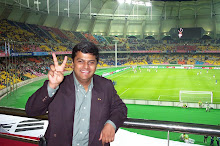Many of us liked the movie Shershah: a Biopic on Late Capt. Vikram Batra. It was good storytelling overall. Thanks to the valor and sacrifice by men like Capt. Batra, we could recover lost ground in Kargil and very recently at Galvan. Nation has been always proud of and thankful to its armed forces since Independence. It was an Independence Day weekend followed by victory at Lords over our past Lords that made the mood more patriotic. ‘Yuddhasya Vartaha Ramya” as they say in Sanskrit meaning the war stories are always engaging, but at the same time, they can be tragic as well to those who lose their lives or are injured and more those around the martyrs and injured. But maybe crying over their losses is a bit disrespectful to their valor and sacrifice.
Right during the Kargil conflict and many years following the war, I had a chance to interact with those who fought on the front. I also experienced the first-hand feedback of personal losses to our armed forces due to my involvement with the activities of defense family support/ defense entrance causes for the Trust in the memory of my closest friend: Late Flt Cdt Parag Chandrakant Limaye. Parag laid down his life for the country during his instructor-led flight training mishap of MIG plane in 1995. Some Kargil Stories are simply unbelievable highlighting the difficulty levels for our forces. Hats off to their indomitable spirit!
While listening to these stories, I was intrigued by how people are capable sometimes of the strangest of transactions: they pay with their own lives for the sake of the country. Normally we can imagine people ready to give their lives for their families. For these martyrs, I think they have a broader vision. They feel nation as their extended family and feel any harm to their nation as harm to their own family. That can be one of the ways to rationalize this strange transaction to the mind of civilian life. But do these army men confront death for any ideological or for that matter even for popularly attributed patriotic reasons?
I had read a statement from a soldier returning to the US from Iraq. He said, “While civilians can postpone their intellectual confrontation with death, a soldier doesn’t have this luxury. On the battlefield, you better sort out your relationship with “Joe Black” quickly, before it’s too late. Thoughts of death will occupy your mind. However, every soldier has another way to deal with it and none of them like to talk about it. Therefore, I can only speak about my own thoughts: The first thing that I had to do when I entered a war zone was to make peace with myself. This means nothing else than to reconcile your ego with the fact that your life is probably over. You always wanted to see the beaches of Thailand? Only one more time see a loved one, a person that is special to you? Forget it, you are going nowhere! The prospect of death has ruined all your life plans and you better deal with it. Of course, when I realized this truth, I became very sad. Many people say that they are not afraid of death itself, but they fear the process of dying, but I wholeheartedly disagree. We fear the great unknown. To get rid of this fear, we have to explore this unknown. We have to take a deep look into the black hole and explore death’s true nature. The moment you have found satisfying answers, something wonderful will happen: Death has become familiar to you, almost like a person. You think more about death than about your family than about anything else. It’s not the great unknown anymore and some soldiers even start to embrace it. Death is an unavoidable certitude you can’t run away from, so why not make it your friend?”
A general gave a firsthand account: “There is no one single emotion that motivates all soldiers to risk death. What are these death-defying emotions?
Kill the enemy, destroy him at any cost, and if we don’t kill them they will kill us. In the heat of battle saving your own/ life of your buddies by killing the enemy first is a strong emotion and sometimes this results in your death/ injury.
The job we are tasked with is very important for our Unit /Army/country; we have to do it at any cost even at the risk of death or injury.
A strong bond with the team: I must follow my team and do what they are doing including risking their own life.
A strong attachment and devotion to and along with a conviction of the martial achievements / traditions of their Regiment/unit/nation which compels the soldier to do the job even facing almost sure death to keep the honor of his Regiment/unit/nation.
A deeply rooted self-image of a brave warrior and to maintain this image in the eyes of all around him, he is ready to risk his own life.
Lastly but most importantly, the excitement of battle prevents his mind to think of death or injury or their consequences at that moment. The task in hand suppresses all other emotions including fear”.
This thought process is something which can explain such heroic feats well symbolized by this famous reply on the television history in India: “Dil Mange More”. As the jingoism set in as an aftereffect of this movie, worldwide Independence Day’s celebrations, and Lord's victory mellowed down there were few questions that started troubling me. Do we as a society deserve the sacrifices made by these real heroes? Do we ourselves think our nation to be our own extended family? Do we follow rules and regulations of the land during our daily lives, occupation, and as a part of civic society? I know this might sound cliché and cynical but it’s a real honest feeling especially in context of the sacrifices made by someone whose heart wanted more.



No comments:
Post a Comment